第162章
Nekhludoff kept up with the quick pace of the convicts. Though lightly clothed he felt dreadfully hot, and it was hard to breathe in the stifling, motionless, burning air filled with dust.
When he had walked about a quarter of a mile he again got into the trap, but it felt still hotter in the middle of the street.
He tried to recall last night's conversation with his brother-in-law, but the recollections no longer excited him as they had done in the morning. They were dulled by the impressions made by the starting and procession of the gang, and chiefly by the intolerable heat.
On the pavement, in the shade of some trees overhanging a fence, he saw two schoolboys standing over a kneeling man who sold ices.
One of the boys was already sucking a pink spoon and enjoying his ices, the other was waiting for a glass that was being filled with something yellowish.
"Where could I get a drink?" Nekhludoff asked his isvostchik, feeling an insurmountable desire for some refreshment.
"There is a good eating-house close by," the isvostchik answered, and turning a corner, drove up to a door with a large signboard.
The plump clerk in a Russian shirt, who stood behind the counter, and the waiters in their once white clothing who sat at the tables (there being hardly any customers) looked with curiosity at the unusual visitor and offered him their services. Nekhludoff asked for a bottle of seltzer water and sat down some way from the window at a small table covered with a dirty cloth. Two men sat at another table with tea-things and a white bottle in front of them, mopping their foreheads, and calculating something in a friendly manner. One of them was dark and bald, and had just such a border of hair at the back as Rogozhinsky. This sight again reminded Nekhludoff of yesterday's talk with his brother-in-law and his wish to see him and Nathalie.
"I shall hardly be able to do it before the train starts," he thought; "I'd better write." He asked for paper, an envelope, and a stamp, and as he was sipping the cool, effervescent water he considered what he should say. But his thoughts wandered, and he could not manage to compose a letter.
My dear Nathalie,--I cannot go away with the heavy impression that yesterday's talk with your husband has left," he began.
"What next? Shall I ask him to forgive me what I said yesterday?
But I only said what I felt, and he will think that I am taking it back. Besides, this interference of his in my private matters. . . No, I cannot," and again he felt hatred rising in his heart towards that man so foreign to him. He folded the unfinished letter and put it in his pocket, paid, went out, and again got into the trap to catch up the gang. It had grown still hotter.
The stones and the walls seemed to be breathing out hot air. The pavement seemed to scorch the feet, and Nekhludoff felt a burning sensation in his hand when he touched the lacquered splashguard of his trap.
The horse was jogging along at a weary trot, beating the uneven, dusty road monotonously with its hoofs, the isvostchik kept falling into a doze, Nekhludoff sat without thinking of anything.
At the bottom of a street, in front of a large house, a group of people had collected, and a convoy soldier stood by.
"What has happened?" Nekhludoff asked of a porter.
"Something the matter with a convict."
Nekhludoff got down and came up to the group. On the rough stones, where the pavement slanted down to the gutter, lay a broadly-built, red-bearded, elderly convict, with his head lower than his feet, and very red in the face. He had a grey cloak and grey trousers on, and lay on his back with the palms of his freckled hands downwards, and at long intervals his broad, high chest heaved, and he groaned, while his bloodshot eyes were fixed on the sky. By him stood a cross-looking policeman, a pedlar, a postman, a clerk, an old woman with a parasol, and a short-haired boy with an empty basket.
"They are weak. Having been locked up in prison they've got weak, and then they lead them through the most broiling heat," said the clerk, addressing Nekhludoff, who had just come up.
"He'll die, most likely," said the woman with the parasol, in a doleful tone.
"His shirt should be untied," said the postman.